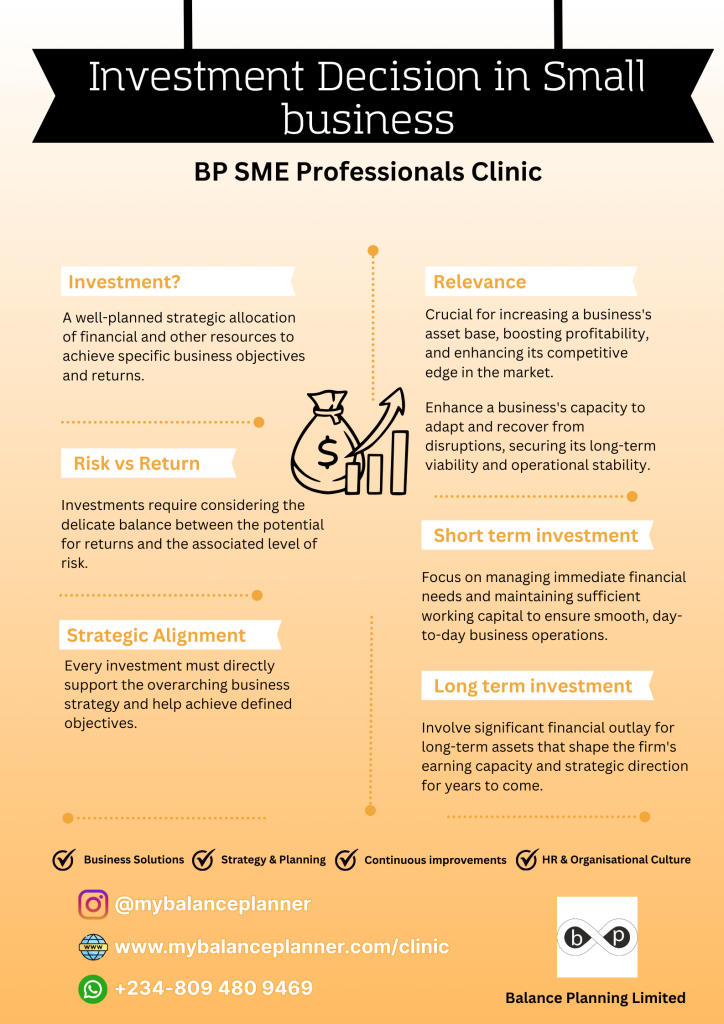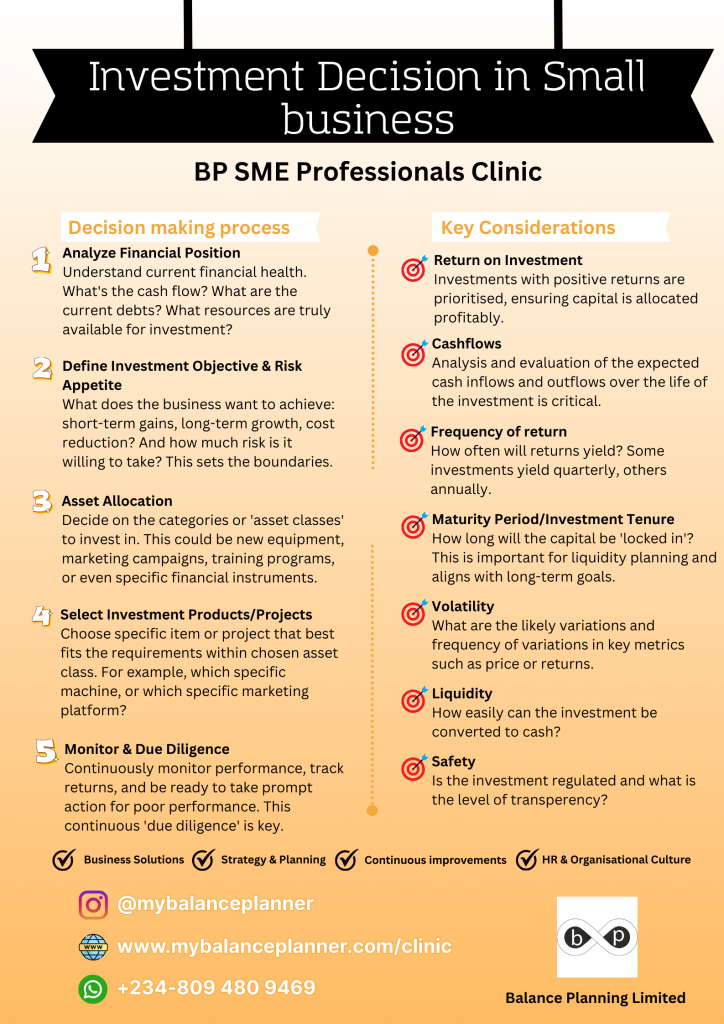Investment decisions is a very important process at the heart of every successful business. Making smart investments is the key to long-term growth and building a resilient business. Strategic allocation of resources is very key to small business owners considering the operational and other resource constraints.
At its core, an investment decision is more than a financial transaction. It is a well-planned, strategic allocation of capital and other vital resources like a team’s expertise and business’s physical space. The ultimate goal is to achieve specific business objectives and, crucially, to generate a return on that investment. For a small business, this is paramount. Investing is what drives growth and competitiveness, whether it means a restaurant purchasing a new point-of-sale system to boost efficiency or a hair salon adding more styling chairs to increase capacity. These actions directly enhance the business’s assets and profitability.

Furthermore, strategic investments are essential for building resilience. A forward-thinking business owner might invest in a robust online ordering platform, ensuring the restaurant can continue to operate even during a pandemic. Similarly, a hair salon diversifying its services to include specialized treatments reduces its reliance on a single revenue stream. These decisions secure long-term viability and protect the business from unforeseen disruptions. This is where the fundamental balance of risk versus return comes into play. Every investment requires a careful consideration of the potential for great returns against the associated level of risk, and every decision must be aligned with the business’s overarching strategy.
To make these decisions effectively, it is helpful to classify investments into two types based on the time focus. Short-term investments are focused on managing immediate financial needs and maintaining sufficient working capital for smooth daily operations. For a restaurant, this may involve ensuring there is enough cash to buy fresh ingredients and pay wages. On the other hand, long-term investments involve a significant financial outlay for assets that will fundamentally shape the firm’s earning capacity for years to come. A typical example is a restaurant purchasing the building or a hair salon investing in a new, high-value laser hair removal machine.

A five-step decision-making framework is useful in guiding the investment decision process. This includes analysising financial position, defining investment objectives and risk appetite. Then setting of clear boundaries, and asset allocation. The final step involves continuous monitoring and due diligence.
Using the above framework, investment decisions should begin with analyzing the business’ current financial position to understand what resources are truly available. Next, the investment objective(s) and risk appetite must be defined with clear boundaries for what the business wants to achieve. This leads to asset allocation, where the general categories to invest in are decided, followed by selecting the specific product or project that best fits the business objectives and needs. The final, and arguably most important, step is continuous monitoring and due diligence to ensure the investment is performing as expected.
Beyond the process itself, there are key factors to consider. Financial metrics like Return on Investment (ROI) and expected cash flows are critical, but it’s also important to think about the less obvious. Considerations like the investment’s maturity period, its volatility in the market, and its liquidity (how easily it can be converted to cash) are all vital for prudent financial planning.
At Balance planning we offer a comprehensive suite of services designed to empower business across all critical functions.
- From delivering tailored Business Solutions that address unique challenges to providing expert guidance on Strategy & Planning that charts a clear path for growth, we are partners in success.
- We also specialize in fostering a robust HR & Organisational Culture, helping business build and retain a strong, productive team.
- We believe that a well-rounded approach to business management is the key to unlocking full potential.
Ready to transform your business and build a more resilient and profitable future? Connect with us today to discover how our dedicated team can help you achieve your goals.
